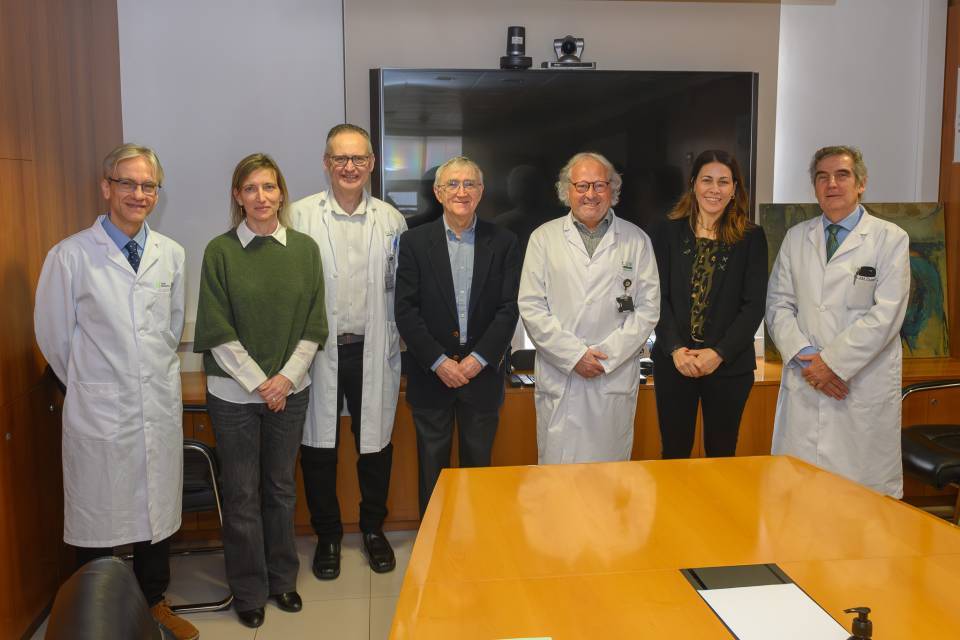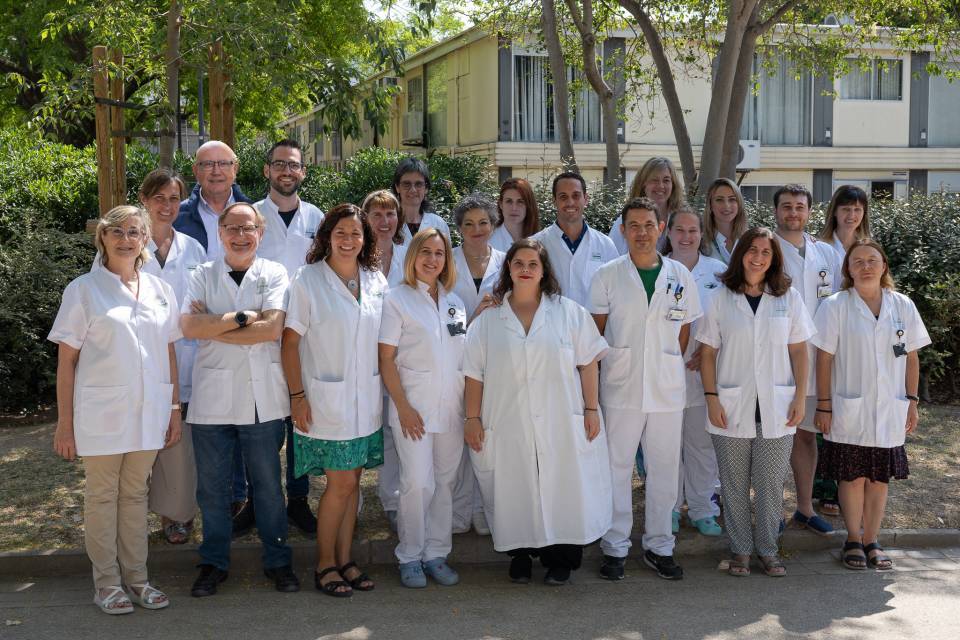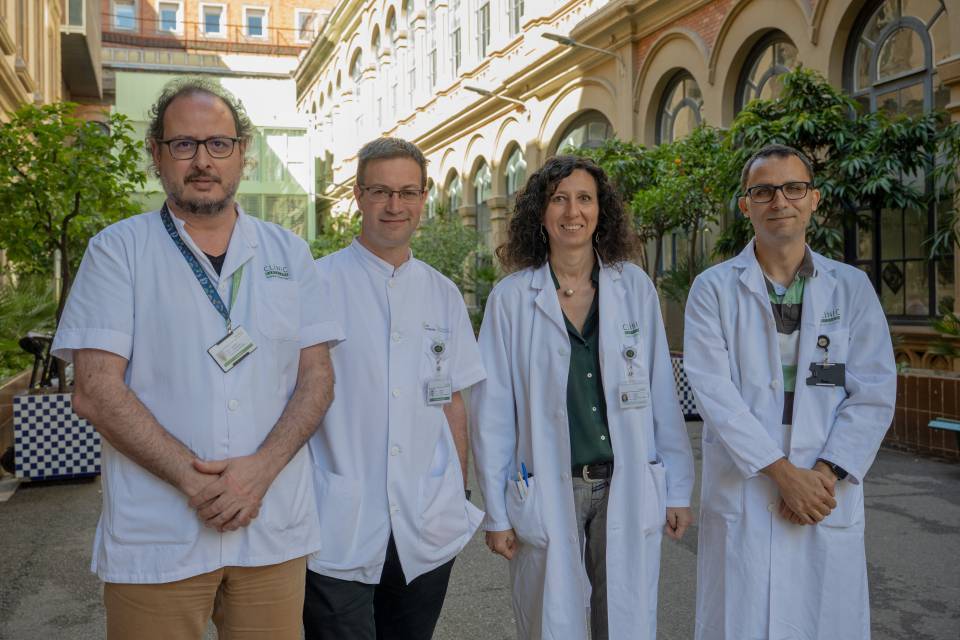The Biochemistry and Molecular Genetics Service participates in the following Units:
At the same time, the Biochemistry and Molecular Genetics Service is organized into four Sections:
The Congenital Metabolic Errors Section consists of two main areas: the first deals with neonatal screening in all babies in Catalonia for the detection of 24 diseases, including congenital hypothyroidism, cystic fibrosis, twenty inherited metabolic diseases (including phenylketonuria), hemoglobinopathies and severe combined immunodeficiencies . The second area focuses on the diagnosis of inherited metabolic diseases, which is carried out first with the study of metabolites using various chromatography and mass spectrometry techniques and then with enzymatic and molecular studies. Complete exome sequencing (using Next Generation Sequencing techniques) allows the genetic diagnosis of all these diseases.
The Section is a referrence point in the diagnosis and monitoring of the treatment of these entities, as well as an important center for research and development.
- The Pharmacology and Toxicology Section consists of a set of highly specialized laboratories that lead the new trends in drug analysis and toxic screening using the mass spectrometry methodology. The Pharmacology laboratory is certified by the Generalitat de Catalunya to carry out Phase I studies (dose escalation in new drugs) and is a leader in new trends in comprehensive pharmacological monitoring, based on pharmacokinetic, pharmacogenetic and pharmacodynamic variables. One of its main areas of knowledge is the pharmacology of personalized immunosuppression. Pharmacokinetic studies are also being carried out for the development of new antitumor, antiretroviral and antimicrobial drugs. The Section actively participates in the Scientific Committees of the International Association of Therapeutic Drug Monitoring and Clinical Toxicology. In the field of toxicology, analyses are made of: drug and drug screening, confirmation of drugs of abuse, methanolemias and amanituries. Various analyses are also provided for the diagnosis of different types of porphyria. In the latter field, it is recognized as a center of excellence by the European Porphyria Initiative. Other activities in the Section are the analyses of vitamins and trace elements by atomic absorption spectrometry.
- In the Molecular Genetics Section, analyses related to the genetic diagnosis of hereditary diseases are made. The healthcare activity is developed around three areas: Molecular Genetics, Cytogenetics and Genetic Counseling and uses techniques of molecular biology, molecular cytogenetics and conventional cytogenetics. The Molecular Genetics area is a reference point for the Network of Hospitals linked to the Catalan Institute of Health and offers molecular diagnostic tests for more than 60 inherited diseases; it also participates in the neonatal screening of cystic fibrosis in a prenatal diagnosis program of fetal aneuploidies in maternal blood (non-invasive prenatal test, NIPT) and in the diagnosis of different diseases in which mass sequencing techniques are used. In the area of Cytogenetics, much of the work is dedicated to prenatal diagnosis, and the Section acts as a reference point in Catalonia. Conventional karyotyping, FISH and molecular karyotyping are used using arrays. The Genetic Counseling Clinic provides genetic and reproductive counseling for diseases of genetic origin.
- The Oncobiology and Cytokine Hormones Section is dedicated to determining the main magnitudes related to hormonal axes, tumor markers, growth factors and cell mediators. Automatic and manual methods are used: ELISA, EIA, RIA, IRMA, immunofluorimetry, chemiluminescence and mass spectrometry. The Prenatal Screening Program, which includes early detection of Down Syndrome and neural tube defects, and the Early Detection of Colon and Rectal Cancer Program are also being developed. The Section collaborates with the corresponding Clinical Services in the definition and development of endocrine functional tests.


